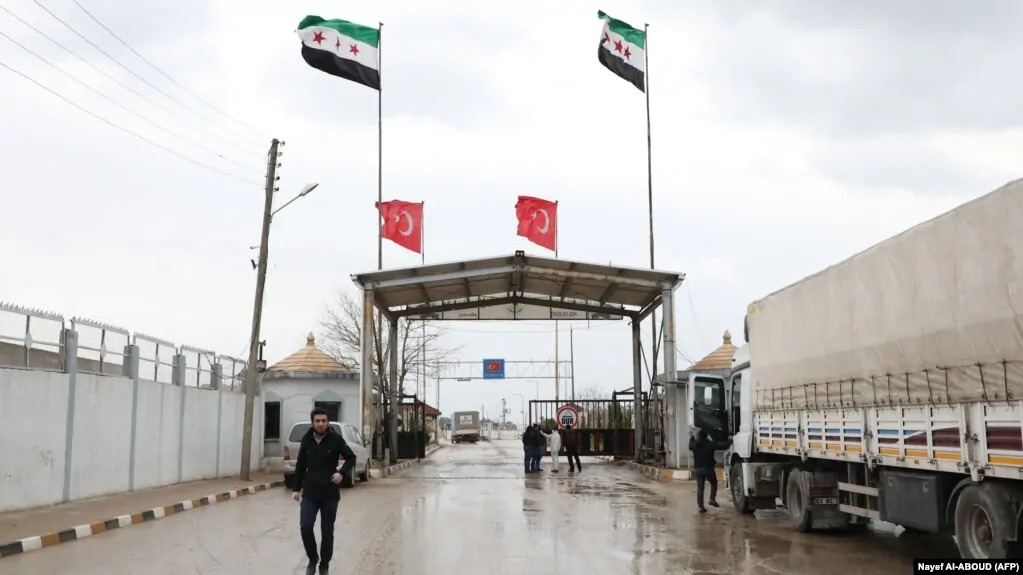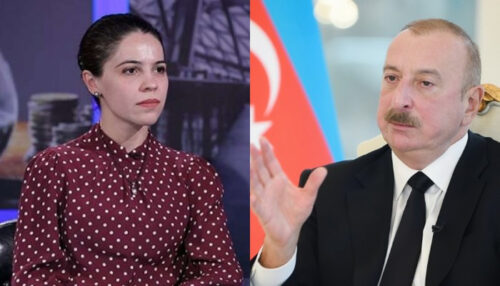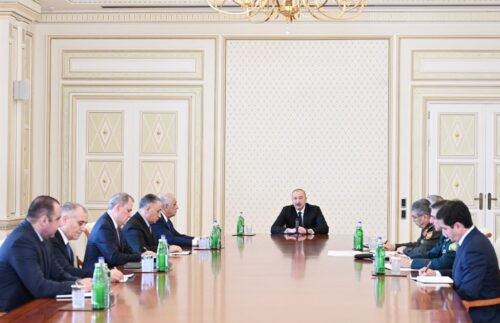
Turkey’s long-term goals in Syria
Genesis Armenia Think Tank/Foundation has published Gevorg Galtakyan’s article, which discusses the geopolitical aspects of the seizure of power in Syria by the terrorist organization Hay’at Tahrir al-Sham (HTS). The article specifically addresses the reshaping of Turkey’s, the U.S.’s, Iran’s, and Russia’s spheres of influence in Syria, as well as Turkey’s long-term objectives regarding that country, which, despite explicit denials, are aimed at making Syria dependent on it.
Hay’at Tahrir al-Sham (HTS) (حياة تحرير الشام – Sham Liberation Organization) terrorist organization is a rebranded version of the terrorist organization Jabhat al-Nusra li’ahl al-Sham (جبهة النصرة لأهل الشام), which previously operated as the Syrian branch of Al-Qaeda (القاعدة – the Base) until 2017. In January 2017, HTS Leader Abu Mohammad al-Julani (real name: Ahmed al-Sharaa) announced the severing of ties with Al-Qaeda, though there are reasonable doubts that “moderate tolerance” and even “regret for extremism” are diplomatic moves aimed at gaining the trust of the international community and the liking of the Syrian population.
In an interview with CNN, al-Julani responded to questions about past connections with Al-Qaeda, stating, “I believe that everyone goes through various phases and experiences in life, and these experiences naturally increase a person’s awareness.” He attributes his previous affiliation with Al-Qaeda to his age and blames “youthful” views. Al-Julani further explains that a leader must grasp reality and be flexible in handling complex conflicts. In the same interview, he provides his definition of the word terrorist, noting: “A terrorist is one who kills civilians and innocent people, intentionally harms and deports them. Many powers in Arab, Islamic or non-Islamic countries have killed thousands of people, bombed many homes, and destroyed and forcibly displaced people.”
Regarding Iran’s influence, al-Julani refers to Bashar al-Assad’s regime as an “Iranian project,” arguing that it has an organic connection to Iran, which pursues its geopolitical interests in “the Arab world.”
When asked about the presence of U.S. military bases, al-Julani gives a cautious and diplomatic response, stating that there is no need for international intervention given the regime’s overthrow, while not ruling out the possibility of external forces’ presence “if it serves Syria’s interests.”
As for HTS being an element of Turkish influence, the mere fact that the events in Syria are portrayed by Turkish media and top leadership as a “victory of democracy” indicates that HTS enjoys Turkey’s undisguised support, while Turkish President R.T.Erdoğan’s statement, where he made a Freudian slip by involuntarily saying that “Aleppo, Hama, Homs and finally Damascus have come under the control of Turkey, their real owners, and the Ba’ath dictatorship, which had survived for 61 years through blood, persecution, crackdown and coercion, has been completely destroyed,” shows that the HTS being a “Western” and especially “Turkish” element is an “open secret” for everyone.
Certainly, Erdoğan can later claim that the above-mentioned statement was merely a mistake and misunderstanding and that he was actually going to say “to the real owners of Syria,” but it is undeniable that subconscious impulses can lead one to inadvertently “let out” carefully hidden thoughts and words.
Al-Julani also addresses one of the most pressing issues in Turkey’s domestic sphere: Syrian refugees. He states that under their administration, refugees from Turkey, Lebanon, Jordan, and Europe will be able to return to Syria.
On the other hand, R.T.Erdoğan accuses Bashar al-Assad of killing about 1 million people and displacing 12 million, then leaving Syria to flee. According to Erdoğan, the number of Syrian refugees in Turkey is currently 2.9 million, having peaked at 3.7 million, with Turkey overall hosting about 4.5 million Syrians.
When we analyze al-Julani’s interview, we can see that he blames Iran in particular—but also Russia—for destabilizing Syria and for the crimes committed for geopolitical reasons—Vladimir Putin and Iranian general Qasem Soleimani, who was assassinated by the U.S., are openly presented as enemies here—while using a notably “cautious tone” regarding the U.S. and especially Turkey. This indicates that Syria, being a part of the broader West-Russia conflict—Syria was once one of the most important strongholds of the USSR in the Middle East—is transitioning under “Western” control under the guise of independence and sovereignty.
Just days after HTS’s capture of Damascus, İbrahim Kalın, Director of Turkey’s National Intelligence Organization (MİT), was seen performing namaz at the Umayyad Mosque—this being another manifestation of Turkish neo-Ottomanism.
With regard to Turkey’s military operations in Syria and the territories it controls there, R.T.Erdoğan pointed out that forces affiliated with the Kurdistan Workers’ Party (PKK) are in a grave situation, especially in areas like Tell Rifaat and Manbij.
In a broader regional context, the weakening of Russian and Iranian hold in Syria clearly signifies a partial realization of Turkey’s neo-Ottomanism dreams and an almost unobstructed opportunity to address security, demographic, and geopolitical challenges it faces in Syria. However, Rojava, the Kurdish movement representatives, remain a politically incompatible force with Turkey in Syria.



